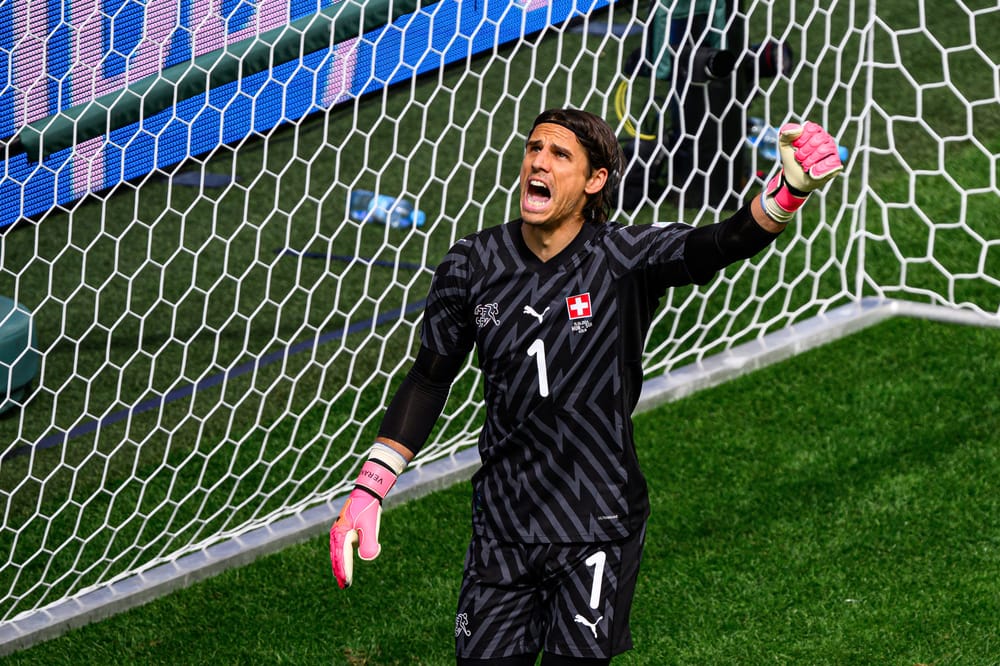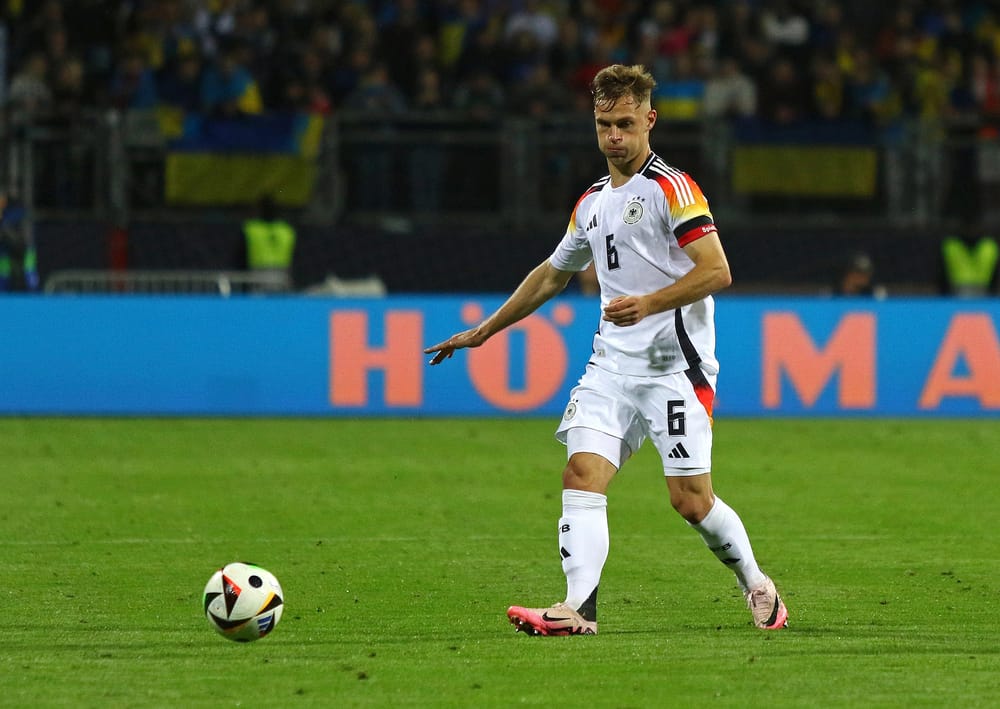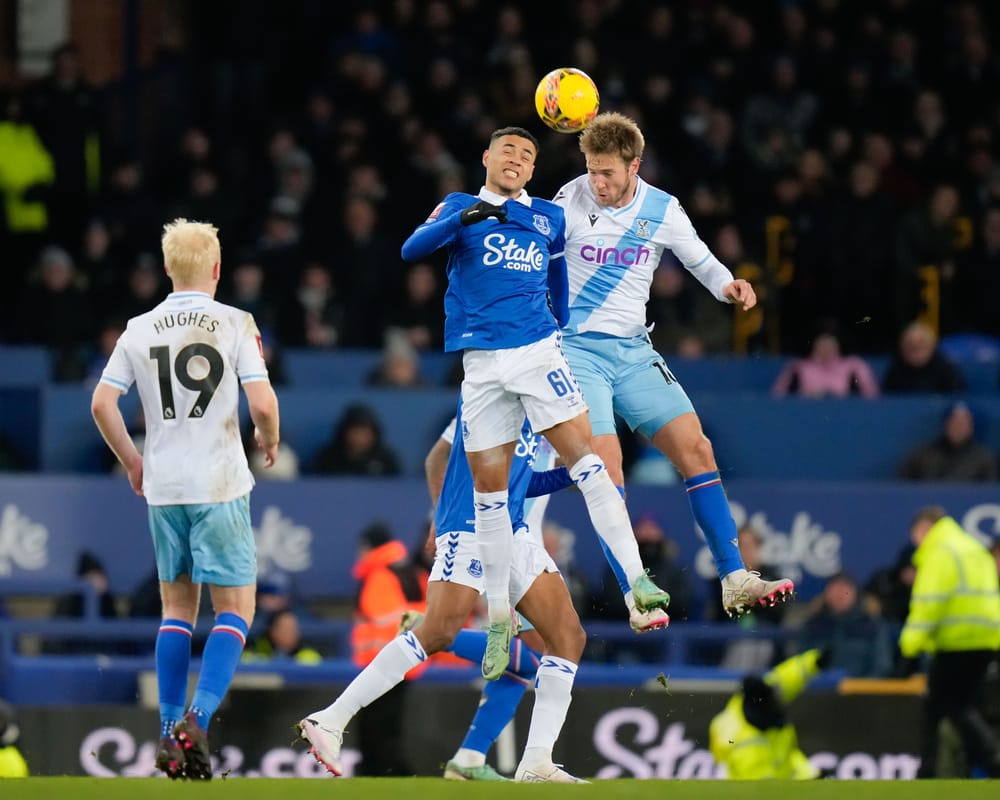Switzerland and Germany Share Spoils in Euro Championship Group A Clash
In a tightly contested Euro Championship Group A match, Switzerland and Germany battled to a 1-1 draw, a result that keeps both teams in contention as they progress through the group stage. The game, held at a packed stadium, was a display of tactical acumen, individual brilliance, and some controversy.
Match Summary
The first half of the game saw Switzerland take an early lead through Dan Ndoye in the 28th minute. The Swiss winger, who had already picked up a yellow card for a foul just three minutes earlier, redeemed himself by converting a beautiful assist from Remo Freuler. Germany thought they had taken the lead earlier when Robert Andrich found the back of the net in the 18th minute, but the goal was canceled after a VAR review for offside.
Germany struggled to break down a well-organized Swiss defense and went into the halftime break trailing. The second half was marked by a series of substitutions from both sides, aiming to alter the dynamics of the game. It wasn’t until the dying moments of the match that Germany finally equalized through Niclas Füllkrug in the 90+2 minute, assisted by David Raum.
Key Players and Plays
Dan Ndoye was a standout performer for Switzerland, despite his early yellow card. His goal in the 28th minute showcased his ability to capitalize on opportunities and his overall work rate was commendable. On the German side, Niclas Füllkrug’s last-minute equalizer was a testament to his poacher’s instinct, ensuring Germany walked away with a point.
Jonathan Tah and Granit Xhaka were both booked for fouls, highlighting the physical nature of the match. Germany’s Florian Wirtz and Jamal Musiala, who came on as substitutes, also added a new dimension to Germany’s attack, making them more dynamic and unpredictable.
Tactics and Strategies
Switzerland set up in a compact 4-4-2 formation, focusing on defensive solidity and quick counter-attacks. Their strategy paid off in the first half, as they were able to absorb German pressure and hit back effectively. The Swiss were disciplined defensively, committing 14 fouls to disrupt Germany’s rhythm and earned three yellow cards in the process.
Germany, on the other hand, dominated possession with 66% of the ball and registered 18 total shots compared to Switzerland’s 4. They operated in a 4-3-3 formation, looking to exploit the wings with Leroy Sané and Serge Gnabry. Despite their dominance in terms of shots and possession, they struggled with accuracy, managing only 3 shots on target. The introduction of fresh legs in the form of Marton Mittelstädt, Florian Wirtz, and Jamal Musiala in the second half was a tactical move to increase their attacking threat, which eventually paid off with the late equalizer.
Broader Implications
This 1-1 draw leaves both Switzerland and Germany in a competitive position within Group A. Switzerland’s resilience will give them confidence as they look forward to their upcoming fixtures against Denmark, Spain, and Serbia in the UEFA Nations League. Their ability to hold off a strong German side demonstrates their potential to challenge the group favorites.
For Germany, the draw is a reminder of the need for clinical finishing. Despite dominating possession and creating more chances, their inability to convert opportunities remains a concern. Upcoming matches against Hungary, Netherlands, and Bosnia & Herzegovina will be crucial for Germany to capitalize on their attacking potential and secure wins.
Both teams will need to refine their strategies and improve on today’s performance as they aim to advance in the tournament. The draw, while not ideal for either side, ensures that the group remains wide open and sets the stage for an exciting conclusion to the group stage.
Scotland vs. Hungary: Euro Championship Group A Showdown Ends in Narrow Victory for Hungary
In a tightly contested Euro Championship Group A match, Hungary emerged victorious with a 1-0 win over Scotland. The game, played on an overcast evening, saw both teams battling fiercely, but it was Hungary who managed to clinch the win with a last-gasp goal deep into stoppage time.
Match Summary
From the onset, the match was marked by aggressive play and tight defenses. Hungary began the game with a flurry of yellow cards, with László Kleinheisler receiving the first in the 5th minute for an argument. This set the tone for a match that saw a total of six yellow cards handed out. The Hungarian side continued to play with intensity, with Callum Styles, Willi Orbán, and András Schäfer all going into the referee’s book for fouls within the first half.
Despite the aggressive play, both teams struggled to create clear scoring opportunities in the first half. Hungary, however, managed to dominate in terms of shots, recording 14 in total with five on target compared to Scotland’s five with none on target. Hungary’s offensive persistence paid off in the final moments of the match.
The decisive moment came in the 100th minute when Hungary’s Kevin Csoboth found the back of the net. The goal, assisted by Roland Sallai, broke the deadlock and left Scotland with no time to mount a comeback. Csoboth’s goal was a product of Hungary’s relentless pressure and strategic substitutions, which kept their attack fresh and dynamic throughout the game.
Key Players and Plays
Kevin Csoboth was undoubtedly the hero for Hungary, scoring the crucial goal that secured the win. His impact was felt not only in scoring but also in his overall play, which earned him a yellow card for his enthusiastic celebration. Roland Sallai’s assist was another highlight, showcasing his vision and ability to deliver under pressure.
On the defensive end, Hungary’s goalkeeper and backline were crucial in maintaining the clean sheet. Scotland, despite having 58% possession and an impressive 82% pass completion rate, failed to convert their control into tangible scoring opportunities, largely due to Hungary’s disciplined defensive play.
For Scotland, Scott McTominay was a standout in the midfield, although his efforts were marred by a yellow card in the 50th minute for a foul. The Scottish defense, led by captain Andy Robertson, worked tirelessly but ultimately could not prevent the late goal.
Tactical Analysis
Hungary employed a balanced 4-3-3 formation that allowed them to switch between defensive solidity and offensive aggressiveness. The tactical discipline of the Hungarian side was evident in their ability to absorb pressure and counter-attack effectively. The multiple yellow cards suggest a strategy of disrupting Scotland’s rhythm, which appeared to work as the Scots struggled to find their footing in the final third.
Scotland, on the other hand, lined up in a 3-5-2 formation, focusing on controlling the midfield and maintaining possession. While this strategy allowed them to dominate the ball, they lacked the cutting edge in the attacking phase, as evidenced by their failure to register a shot on target. The late substitutions by Scotland, including the introduction of John McGinn and Che Adams, were attempts to inject fresh energy, but these changes came too late to influence the outcome.
Broader Implications
This result has significant implications for both teams moving forward in the Euro Championship. For Hungary, the victory provides a crucial three points that could prove pivotal in their quest to advance from Group A. The win will also boost their confidence as they prepare to face Germany in their next UEFA Nations League match.
For Scotland, the loss is a setback that highlights the need for more clinical finishing and perhaps a tactical rethink. With upcoming matches against strong teams like Poland, Portugal, and Croatia in the UEFA Nations League, Scotland will need to address their offensive deficiencies and find ways to convert possession into goals.
Overall, this match serves as a reminder of the fine margins that can determine the outcome in football. Hungary’s ability to seize their moment at the death, combined with Scotland’s inability to capitalize on their possession, made all the difference in this Euro Championship clash.



